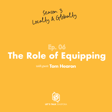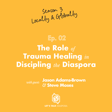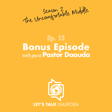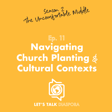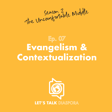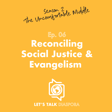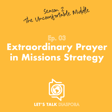
Urgency of Discipleship
In this podcast episode, Rebecca and Bud discuss the topic of short-term discipleship in the context of the diaspora. They explore the tensions and challenges surrounding discipleship and provide insights into effective approaches.
The hosts begin by acknowledging the importance of discipleship and the tensions that arise within different views of how to disciple new believers. They mention the urgency of discipleship, particularly in the diaspora context, where believers may come from unreached people groups with little to no Christian background.
They delve into the question of what short-term discipleship should consist of and how to approach it. The hosts emphasize the importance of equipping new believers with fundamental principles and practices, such as evangelism, repentance, baptism, prayer, and more. They also discuss the concept of "discovery Bible study," where participants read scripture together and engage in discussion and questions.
The hosts emphasize the value of reproducibility in discipleship methods and the significance of the entire community's involvement in the discipleship process. They stress that every believer is responsible for making disciples and that the approach should be focused on modeling and reproducing healthy discipleship practices. Additionally, they discuss the need for adapting discipleship methods based on the unique context of the individual and the community.
Throughout the episode, the hosts share personal anecdotes, real-world examples, and practical insights on discipleship in the diaspora context. They highlight the necessity of addressing the urgency of discipleship and encourage listeners to consider how they can better equip new believers to grow in their faith and effectively disciple others.
Resources:



